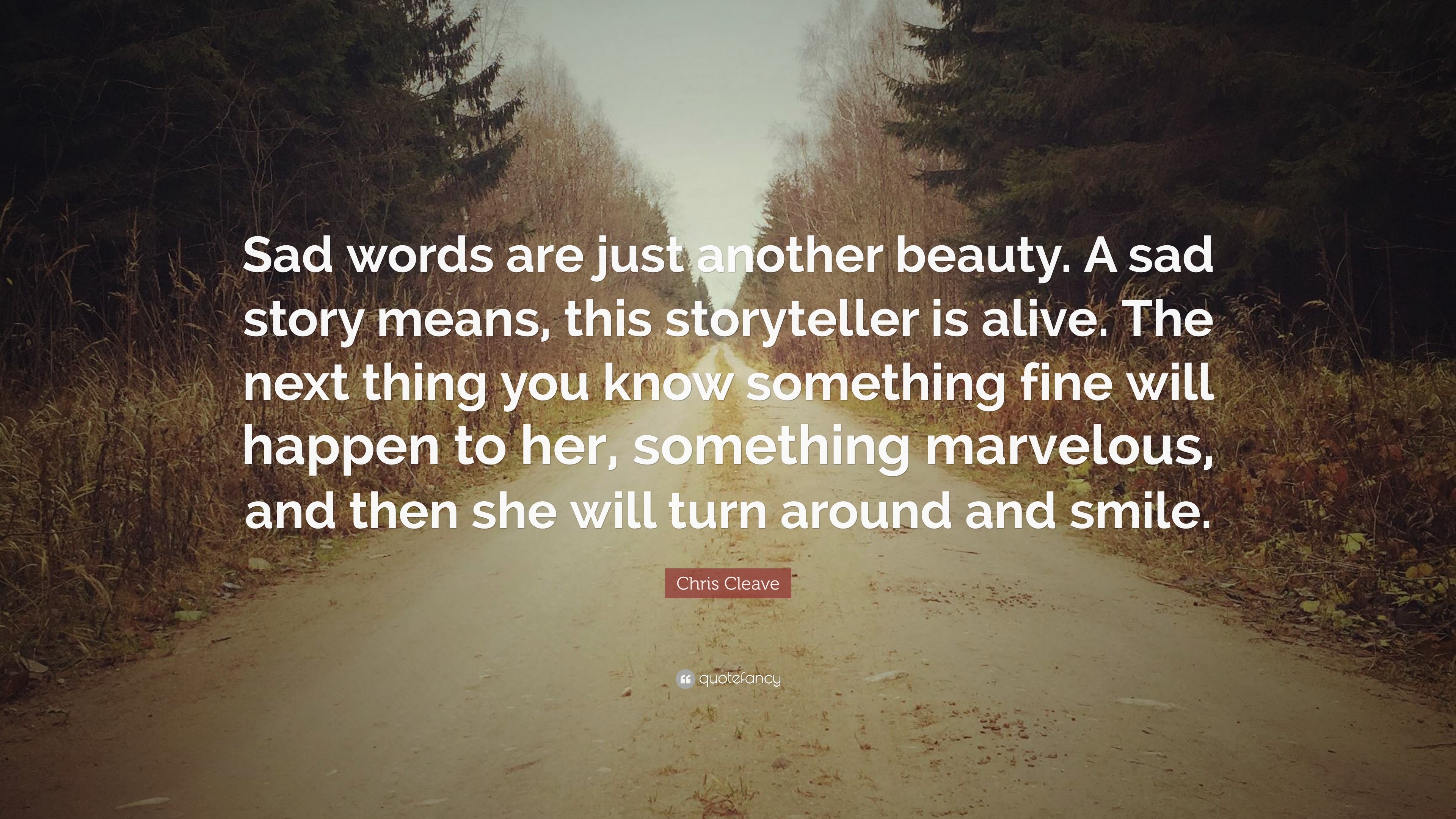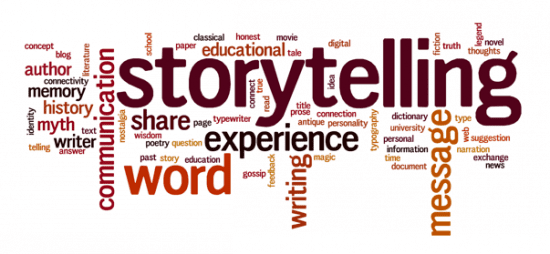Because using words to tell stories is so fundamental to our everyday experience,narration, a fancy word for storytelling, is the perfect place to start our composition course in earnest. For many students, a narrative essay, one which requires to writer to tell a story of some sort, is the most comfortable and enjoyable kind of assignment to tackle. This is especially true if you are interested in creative writing or have aspirations of publishing short stories, screenplays, or novels. Once you've answered at least some of these questions, another helpful prewriting strategy that many writers use isfreewriting.
This is also calledstream-of-consciousness writing, and it's important to note that this is not like drafting the actual story, although you may use some of the stuff you come up with when you put the paper together. This kind of writing is meant to be totally free and disorganized; you don't worry about spelling, grammar, organization, or even logic. You just let yourself write, and when the time period is up, you look back at what you've come up with and see if anything useful has been created. Finally, your writing is expressive and vivid when you avoid repetition. When your word choice reflects the emotions or tone expressed by a quote or piece of dialogue that you include in your writing, your readers can get a better sense of your intended meaning. Using synonyms for "said" to create tone and imagery in your writing can help readers better understand your position and make them more willing to buy into your ideas.
This module discusses the stories we tell to make sense of the world. The importance of storytelling to human existence is explained. Narration is then introduced as another word for this storytelling, and its connection to other academic writing and description is discussed. Examples are provided of perspective and point-of-view, and the primary components of narrative writing are introduced to help writers begin constructing their own stories. Chronological order, the ordering of events through time, is explained, as is the concept of the flashback, jumping backwards in time.
The prewriting strategies of questioning and freewriting are introduced as ways to generate ideas for a narrative. Outlining is emphasized as necessary for the construction of logical, cohesive papers. Finally, the importance of using transitions to connect ideas when composing is discussed.
Creative writing is a third situation that might require you to think strategically about when to use "said." In creative writing--like fiction, for instance--when and how often to use "said" is pretty much up for debate. In fact, sometimes it's okay to strategically omit attributions altogether. A story is the telling of some series of connected incidents or events, whether real or fictitious, in prose or verse, orally or in writing; or the series of incidents or events thus related may be termed a story.
In children's talk, a story is a common euphemism for a falsehood. An anecdote tells briefly some incident, assumed to be fact. If it passes close limits of brevity, it ceases to be an anecdote, and becomes a narrative or narration.
A traditional or mythical story of ancient times is a legend. A history is often somewhat poetically called a story; as, the story of the American civil war. Alternatively, dialogue attributions in creative writing are another place where word variety is important. Your attributions are a great way for you to add emotion and imagery to your work.
That means sometimes you might simply use "said," sometimes you might use a more expressive synonym for "said," and other times you might forego attributions altogether. For example, if the spell checker highlights a word that is misspelled and gives you a list of alternative words, you may choose a word that you never intended even though it is spelled correctly. It can also confuse readers, making them lose interest.
Computer spell checkers are useful editing tools, but they can never replace human knowledge of spelling rules, homonyms, and commonly misspelled words. The way words are chosen and used is often what defines a piece of literature; so, synonyms allow all authors to develop their own styles and voices when creating their works. Another main reason we use synonyms is because words often share the same meanings but have different connotations (a word's implied meaning). For example, you might say "the soup's aroma was in the air," which makes it sound delicious, but "the soup's odor was in the air" makes it sound terrible. So, an author chooses a synonym based on its positive, negative, or neutral connotation. This helps writers say what they mean, and how they mean it.
A synonym is simply a word that means the same as the given word. It comes from the Greek "syn" and "onym," which mean "together" and "name," respectively. When speaking or writing, one of the best ways to expand your vocabulary and to avoid using the same words repeatedly is to use a thesaurus to find synonyms . A thesaurus is a general phrase that describes a type of dictionary that provides a list of words that have the same or similar meaning as the word referenced. For example, if you were to look up the word "beautiful," you might get a listing of more than thirty words that have similar meanings. There are many forms of a thesaurus from Roget's Thesaurus, authored by Peter Mark Roget and published in 1852, to online materials available from companies that specialize in educational resources.
Since word choice is everything in language (probably the most crucial part!), the importance of synonyms is beyond measure. Synonyms make language more interesting, more meaningful, and more relevant. They have a huge, central role in word choice for both prose and poetry. In fact, you could argue that poetry wouldn't even exist without synonyms—one of the main reasons we use them is to be descriptive, creative, and expressive, and poetry relies on those three things. Imagine what writing, reading, and speaking would be like if there were only one word for everything! Language would be boring, and would have no room for creativity.
To get good at writing, you need to know what words to use. It's how everybody starts, and nobody should take offense to that. And no, it is not necessarily that easy to just think of words. Writing with "too many" complex words is good, gives the characters tone, and emotions.
We have complex words in our dictionary for a reason, to explain complex feelings. Simpler words should be used, but that doesn't mean we need to overuse them. Finding more complex words helps make your story not sound dry and boring. It is not simple and smart, it sounds blatantly stupid, and honestly, you sound like a person who doesn't know much about writing. Our school wanted us to write a story and I absolutely love writing stories but I got a little annoyed when I kept using the word 'said' again and again.
These words express emotion into the sentence and make the sentence more longer which for me is a good thing. Effective writing involves making conscious word choices. When you prepare to sit down to write your first draft, you likely have already completed some freewriting exercises, chosen your topic, developed your thesis statement, written an outline, and even selected your sources. When it is time to write your first draft, start to consider which words to use to best convey your ideas to the reader. When writing, you need to choose the correct word according to its spelling and meaning in the context.
Not only does selecting the correct word improve your vocabulary and your writing, but it also makes a good impression on your readers. The following strategies can help you avoid misusing confusing words. It simply looks through tonnes of dictionary definitions and grabs the ones that most closely match your search query. For example, if you type something like "longing for a time in the past", then the engine will return "nostalgia". The engine has indexed several million definitions so far, and at this stage it's starting to give consistently good results .
It acts a lot like a thesaurus except that it allows you to search with a definition, rather than a single word. So in a sense, this tool is a "search engine for words", or a sentence to word converter. This sounds simple, but a writer must make many important decisions in order for chronological order to be an effective organizing tool, especially when he or she is writing a short essay. Perhaps most importantly, a writer must remember that a good story starts as close tothe climactic moment of the conflict as possiblein order to be concise and consistently interesting.
A story'sconflictis the struggle that the main character must endure as the story proceeds, the obstacle that he or she must overcome. This conflict could involve another character, such as in classic confrontations of heroes and villains . Before you write your narrative, you need to have a clear understanding of what this conflict is so that you can build to aclimactic momentwhen the conflict is resolved and the story'spurposeis revealed. Remember that a main character may even be the person telling the story if the writer is using the first-person perspective. This passage is also an example of anobjective perspective, one that strives to be asfactualandunbiased(unemotional and even-handed; fair) as possible in order to construct a believable reality free from emotion.
Much academic and professional writing is expected to be objective in order to establish trust with the reader and seek a truth that can be agreed-upon, not dictated by personal bias or emotional assumptions. The English language is full of pairs of words that have subtle distinctions between them. All writers, professionals and beginners alike, face the challenge of choosing the most appropriate synonym to best convey their ideas.
When you pay particular attention to synonyms in your writing, it comes across to your reader. The sentences become much more clear and rich in meaning. In conclusion, synonyms are an essential part of the English language that we could not live without, in writing or speaking. They are the most powerful type of descriptive tool, making them an important part of both prose and poetry alike. Synonyms provide freedom for word choice and allow authors to choose words with the right connotation to fit their style and serve their purpose.
Does writing a chapter book seem like newbie writers to you? That comment you just posted might have crushed some of their dreams! I also do NOT allow the word, "cringey," to be used on comments, chats, etc. etc.
It is rude, it is offensive, and like I said before, it will crush other people's dreams. And yes, you seem like a person who do NOT know about writing at all. You can't just simply use the word "said." Didn't you read this article? Using the word said can be "BORING" and "NOT INTERESTING." You need to read the article and you can't judge other people's comments and what they type and what they think. The first situation where you can expect to see writers exclusively using "said" is in any type of writing that relies on AP Style.
"AP" stands for "Associated Press," and this set of style guidelines is the standard for journalistic writing. This includes writing for newspapers, magazines, and public relations in the United States. AP Style provides a lot of rules about grammar, spelling, punctuation, and language use, and using "said" for quote attribution is one of those rules. Many people read to remember everything and do not distinguish between key concepts, key supporting details, positions relative to these concepts, and inferences that can be drawn.
Creating a road map with these highlights helps you both to understand and to remember what you read. This section includes a few exercises to practise identifying the main and supporting ideas in passages representing the different patterns. This exercise will show you how simple changes in word choice and a writer using a lot of personal opinion will impact the reader.
Look at the two passages below then answer the questions. Consulting the dictionary is one way to make sure you are using the correct word in your writing. You may also keep a list of commonly confused words nearby when you write, or study the chart in this section.
On your own sheet of paper, write a sentence with each of the following words that illustrates the specific meaning of each synonym. However, it is important to remember that not all pairs of words in the English language are so easily interchangeable. The slight but important differences in meaning between synonyms can make a big difference in your writing. For example, the words boring and insipid may have similar meanings, but the subtle differences between the two will affect the message your writing conveys. The word insipid evokes a scholarly and perhaps more pretentious message than boring.
Second, word variety can make your writing more accurate. One final writing situation where you'll find yourself needing to make decisions about when to use "said" is academic, research-based writing. In academic writing, it's important to be clear about who you are quoting and to provide adequate context for the quote you include.
For example, if the scholar you're quoting is making an argument in the quote you include, it would be more accurate to say, "Dr. Garcia said." Using a quote attribution that gives your reader a clearer sense of the speaker or writer's purpose and tone. The last emotion it might be helpful to be able to express accurately and vividly in your writing is fear. Here's a list of synonyms for "said" that you can use to demonstrate a feeling of fear. Survey, read, and identify the main points and key details in this paragraph. Using a dictionary and thesaurus as you write will improve your writing by improving your word choice.
Some writers are picky about word choice as they start drafting. They may practise some specific strategies, such as using a dictionary and thesaurus, using words and phrases with proper connotations, and avoiding slang, clichés, and overly general words. He is a Spokane/Coeur d'Alene Indian and an American writer, poet, and filmmaker. Alexie was born with hydrocephalus, or water on the brain.
This condition led doctors to predict that he would likly suffer long-term brain damage and possibly mental retardation. Although Alexie survived with no mental disabilitys, he did suffer other serious side effects from his condition that plagud him throughout his childhood. Amazingly, Alexie learned to read by the age of three, and by age five he had read novels such as John Steinbeck's The Grapes of Wrath. The reading skills he displaid at such a young age foreshadowed what he would later become. Today Alexie is a prolific and successful writer with several story anthologeis to his credit, noteably The Lone Ranger and Tonto Fistfight in Heaven and The Toughest Indian in the World.
Most of his fiction is about contemporary Native Americans who are influenced by pop culture and powwows and everything in between. His work is sometimes funny but always thoughtful and full of richness and depth. His latest collection of storys is called War Dances, which came out in 2009. Having a solid everyday vocabulary will help you while writing, but learning new words and avoiding common word errors will make a real impression on your readers.




























No comments:
Post a Comment
Note: Only a member of this blog may post a comment.